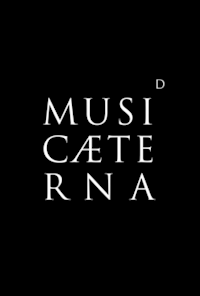Symphony No. 14, op. 135 (Symphony No. 14, Op. 135), Shostakovich
Aqsam
musicAeterna (2022)Informazzjoni minn organizzazzjoni tal-arti (Verifikat minn Operabase)
Starring:
26 - 29 Settembru 2022 (2 rappreżentazzjonijiet)
Żur il-websajtZaryadye Hall, Moscow, Russia
(+ 1 aktar)Symphony No. 14, Op. 135 by Shostakovich, Minn (2022/2022), Surmast Direttur Teodor Currentzis, Zaryadye Hall, Moscow, Russia
Produttur
Conductor
Kast
Bass
Soprano
Strumentazzjoni
Piano
Cello
Viola
Ekwipaġġ
Vioin
Ensemble
Orkestra
Tgħallem aktar dwar il-kompożitur
Tgħallem aktar dwar ix-xogħol mużikali
